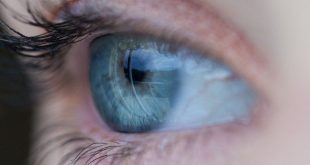The European project MAESTRIA, launched in March 2021 and set to run 5 years, will take on the major challenges of data integration and personalized medicine with the aim of preventing heart rhythm problems and stroke. How? By using artificial intelligence approaches to create multi-parametric digital tools. Led by Sorbonne University and funded by the European Union to the tune …
Read More »Search Results for: Data
What is beamforming?
Beamforming is a telecommunications technology that enables the targeted delivery of larger and faster signals. The development of 5G relies in particular on beamforming. Florian Kaltenberger, researcher at EURECOM and 5G specialist, explains how this technology works. What is beamforming? Florian Kaltenberger: Beamforming consists of transmitting synchronized waves in the form of beams, from an antenna. This makes it possible to target …
Read More »Is there intelligence in artificial intelligence?
Jean-Louis Dessalles, Télécom Paris – Institut Mines-Télécom (IMT) Nearly a decade ago, in 2012, the scientific world was enthralled by the achievements of deep learning. Three years later, this technique enabled the AlphaGo program to beat Go champions. And this frightened some people. Elon Musk, Stephen Hawking and Bill Gates were worried about an imminent end to the human race, replaced by out-of-control artificial intelligence. …
Read More »AlertSmartCity, Cook-e, Dastra, DMS, GoodFloow, JobRepublik, PlaceMeet and Spectronite supported by the “honor loan” scheme
The members of the IMT Digital Fund-IGEU, IMT and Fondation Mines-Télécom held a meeting on 23 February. On this occasion, 8 start-ups from the incubators of IMT Mines Albi, IMT Atlantique, IMT Lille Douai, Télécom Paris, Mines Saint-Étienne, Télécom SudParis and Institut Mines-Télécom Business School were awarded 18 honor loans (interest-free) for a total of €340,000. AlertSmartCity (the incubator at IMT Mines Albi) wishesto create …
Read More »What do we know about the environmental impact of biocomposites?
Bio-based materials are an alternative to those derived from fossil resources. They have been increasingly promoted in recent years. However, given the recent development of this sector, their real environmental impact is still relatively unknown. Joana Beigbeder, researcher in environmental analysis at IMT Mines Alès, provides an update on the life cycle analysis (LCA) of these emerging materials. Although bio-based materials …
Read More »El Niño: communities in the face of weather’s bad boy
South America must regularly face a climate event with far-ranging effects: El Niño, which leads to localized flooding. This type of catastrophe also results in changes in the behavior of local communities – a topic which has been little studied. Yet these changes provide a good example of individuals’ resilience to crises. By studying consumption habits in the regions affected …
Read More »Pam Tim, Examin, Cylensee and Possible supported through honor loan program
The members of the IMT Digital Fund, IGEU, IMT and Fondation Mines-Télécom met on 6 April. On this occasion, four start-ups developed through incubators at IMT Atlantique, Télécom Paris, Télécom SudParis and Institut Mines-Télécom Business School obtained 8 honor loans for a total of €160,000. Cylensee (IMT Atlantique incubator) develops and produces connected electrochromic contact lenses for the general public. These …
Read More »Digital simulation: applications, from medicine to energy
At Mines Saint-Étienne, Yann Gavet uses image simulation to study the characteristics of an object. This method is more economical in terms of time and cost, and eliminates the need for experimental measurements. This field, at the intersection of mathematics, computer science and algorithms, is used for a variety of applications ranging from the medical sector to the study of …
Read More »Making algorithms understand what we are talking about
Human language contains different types of information. We understand it all unconsciously, but explaining it systematically is much more difficult. The same is true for machines. The NoRDF Project Chair “Modeling and Extracting Complex Information from Natural Language Text” seeks to solve this problem: how can we teach algorithms to model and extract complex information from language? Fabian Suchaneck and Chloé Clavel, both …
Read More »Innovation in health: towards responsibility
Digital innovations are paving the way for more accurate predictive medicine and a more resilient healthcare system. In order to establish themselves on the market and reduce their potential negative effects, these technologies must be responsible. Christine Balagué, a researcher in digital ethics at Institut Mines-Télécom Business School, presents the risks associated with innovations in the health sector and ways …
Read More » I'MTech L'actualité scientifique et technologique de l'IMT
I'MTech L'actualité scientifique et technologique de l'IMT









